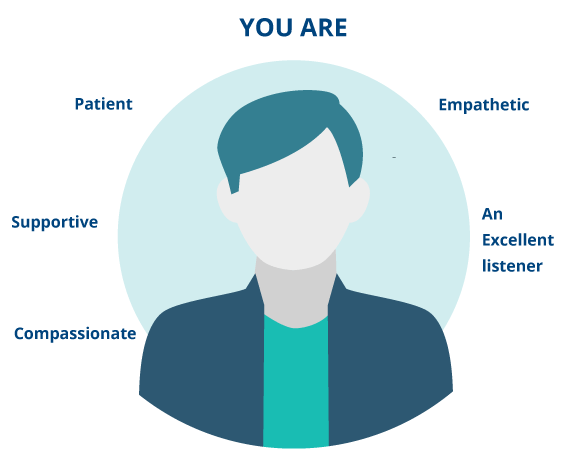Unlocking the Tricks of Mental Wellness: A Review of Therapy and Therapy Options
Mental wellness is a complicated and essential facet of general wellness. Many counseling and therapy alternatives exist to address various psychological obstacles. Each technique offers special advantages and approaches customized to individual demands. Comprehending these choices is vital for anybody looking for to boost their psychological wellness. Couples Therapy. What elements should one think about when checking out these avenues? The solution may reveal a course to a much healthier emotional state
Recognizing Mental Health And Wellness and Its Importance
Mental wellness incorporates the emotional, psychological, and social well-being of individuals, substantially affecting exactly how they think, feel, and act. Its importance can not be overstated, as it impacts every aspect of life, including connections, job efficiency, and general quality of life. People with great mental health often tend to deal with stress and anxiety better, maintain healthier relationships, and make notified decisions. Alternatively, bad mental health can cause emotional distress, impaired performance, and various mental disorders, which may need specialist treatment. Comprehending mental health is crucial for acknowledging the signs of distress and the demand for support. Recognition likewise advertises empathy and minimizes stigma, encouraging people to look for help when needed. By prioritizing psychological health, areas can foster atmospheres that sustain emotional wellness, ultimately bring about much healthier, more resilient people. This foundation offers as a critical step toward reliable mental health and wellness therapy and treatment options.
Kinds Of Counseling Methods
Therapy strategies differ commonly, each customized to meet the one-of-a-kind needs of individuals looking for support. Among one of the most usual types are cognitive-behavioral therapy (CBT), which focuses on recognizing and altering unfavorable thought patterns, and person-centered therapy, which emphasizes compassion and acceptance. Psychodynamic therapy explores past experiences and unconscious processes to understand present habits, while solution-focused short therapy aims to identify services instead than check out problems.Additionally, household therapy addresses relational dynamics and communication within households, promoting healthier interactions. Team therapy gives a public area for participants to share experiences and sustain one another. Various other strategies consist of existential therapy, which encourages individuals to find meaning and purpose, and art or music therapy, which utilizes innovative expression as a restorative tool. Each method offers distinctive methods and viewpoints, permitting clients to find one of the most suitable method for their individual growth and recovery trips.
Discovering Various Therapy Methods
In the domain name of mental health and wellness counseling, numerous therapy methods use distinct strategies to treatment. Cognitive Behavior modification emphasizes the link between actions and ideas, while Psychodynamic Treatment explores subconscious influences on psychological well-being. In Addition, Mindfulness-Based Techniques advertise present-moment awareness as a way to boost emotional law and overall psychological health.
Cognitive Behavior Modification
Cognitive Behavioral Treatment (CBT) stands apart as one of one of the most commonly exercised and researched techniques in psychological wellness treatment. This strategy focuses on the interconnection in between behaviors, feelings, and ideas, stressing that altering unfavorable idea patterns can cause improved emotional wellness and behavior adjustments. CBT is structured, generally entailing a minimal number of sessions, and aims to gear up individuals with functional abilities to handle their signs and symptoms. It works for a variety of conditions, including anxiousness problems, clinical depression, and post-traumatic stress and anxiety disorder. By utilizing techniques such as cognitive restructuring and exposure treatment, CBT fosters resilience and empowers clients to confront difficulties head-on, making it a valuable alternative in the landscape of mental health therapies.
Psychodynamic Therapy Techniques
Psychodynamic therapy approaches provide a deep expedition of the subconscious mind and its impact on habits and emotional wellness. Rooted in Freudian theory, these approaches emphasize the importance of very early childhood experiences and subconscious disputes. With methods such as complimentary association, desire evaluation, and transfer, individuals acquire insight right into their feelings and thoughts, fostering self-awareness and understanding. This healing technique motivates clients to reveal repressed emotions and unsolved problems, which can be critical in dealing with existing emotional difficulties. By analyzing the interaction in between previous experiences and existing habits, psychodynamic therapy aims to advertise emotional recovery and personal development. Eventually, it provides a structure for people to check out complex inner characteristics that affect their mental health.

Mindfulness-Based Methods
While standard treatments usually concentrate on previous experiences, mindfulness-based strategies focus on present-moment recognition as a path to psychological well-being. These approaches, including mindfulness-based cognitive therapy (MBCT) and mindfulness-based stress reduction (MBSR), motivate individuals to engage fully with their ideas and feelings without judgment. Specialists learn to observe their mental states, fostering a greater understanding of emotional triggers and reactions. This practice not only alleviates symptoms of anxiety and depression but likewise boosts total psychological strength. By integrating mindfulness exercises, such as reflection and deep breathing, customers grow a sense of peace and quality. Eventually, mindfulness-based methods equip individuals to navigate life's obstacles with boosted understanding and acceptance, advertising a healthier connection with their feelings and thoughts.
The Duty of a Specialist or Counselor
A knowledgeable specialist or therapist plays an essential function in supporting people with their psychological wellness trips. They give a safe, non-judgmental area where clients can share their feelings and ideas freely. Marriage Counselling. By employing numerous restorative strategies customized to each person's demands, therapists aid customers explore underlying problems that may add to their psychological health and wellness challenges.Therapists offer support and devices to deal with stress and anxiety, anxiety, clinical depression, and other psychological troubles. Their training equips them to acknowledge patterns in actions and thought procedures, helping with understandings that bring about individual growth. They additionally foster a strong restorative partnership, which is vital for successful outcomes.Moreover, specialists continue to be committed to privacy and moral standards, guaranteeing a relying on atmosphere. Inevitably, the role of a therapist or counselor is to equip individuals, motivating them to establish durability and much healthier coping techniques while guiding via life's complexities
How to Choose the Right Counseling or Treatment Alternative
Choosing the right counseling or treatment choice starts with examining private demands. It is important to recognize individual obstacles and objectives prior to exploring various therapy designs. This fundamental action can significantly influence the effectiveness of the chosen method.
Evaluate Your Demands
How can people successfully examine their mental health requires when assessing therapy or treatment choices? First, they need to review their emotion and recognize specific concerns, such as anxiousness, anxiety, or partnership challenges. Journaling can be a beneficial device for tracking thoughts and feelings gradually. Additionally, individuals may take advantage of looking for feedback from trusted pals or member of the family concerning viewed adjustments in actions or mood. It is also practical to review personal goals for therapy, such as improving coping skills or getting understanding right into individual patterns. Researching various therapy modalities and their suitability for specific needs can aid in making an enlightened choice. Ultimately, self-awareness plays a critical function in selecting the best path for mental health and wellness support.
Explore Therapy Designs
While passing through the diverse landscape of treatment alternatives, people must think about various designs of counseling to locate the most effective suitable for their one-of-a-kind requirements. Cognitive Behavioral Treatment (CBT) concentrates on altering negative idea patterns, while Psychodynamic Therapy explores unconscious procedures and past experiences. Humanistic strategies stress personal development and self-actualization, cultivating a helpful environment. Furthermore, mindfulness-based treatments cultivate present-moment recognition, helping psychological policy. For those looking for structure, Solution-Focused Quick Therapy targets details goals and remedies. Group treatment provides a common setting for shared experiences and assistance. Ultimately, people should certainly assess their choices, comfort levels, and certain challenges, ensuring they pick a therapeutic design that resonates with their individual trip toward mental health.
Conquering Obstacles to Looking For Help

The Benefits of Counseling and Treatment for Psychological Wellness
Looking for help for psychological wellness challenges can cause significant enhancements in total health. Counseling and treatment supply individuals with a risk-free room to discover their feelings and thoughts, cultivating self-awareness and individual growth. These expert solutions outfit clients with coping approaches and analytical abilities customized to their special situations.Moreover, treatment can lower signs and symptoms of anxiety, clinical depression, and other psychological wellness conditions, improving psychological resilience. Normal sessions advertise liability and encourage individuals to establish and achieve personal goals. Through various therapeutic modalities, such as cognitive-behavioral treatment or mindfulness methods, clients discover to reframe negative thoughts and create much healthier behaviors.Additionally, the healing partnership itself can be a resource of assistance, assisting to fight isolation and loneliness. In general, engaging in counseling and treatment is a positive action toward achieving mental health, allowing individuals to lead even more meeting lives.
Regularly Asked Concerns
For How Long Does Therapy or Treatment Commonly Last?
The period of counseling or treatment differs substantially, commonly lasting from a couple of sessions to several months or years. Factors affecting this consist of the individual's specific demands, the kind of therapy, and restorative goals.
What Should I Expect Throughout My Very First Session?
Throughout the very first session, people can anticipate an introduction, conversation of worries, and the therapist's strategy. They may finish evaluations and establish objectives, fostering a secure setting for open interaction and building relationship.

Are There Any Type Of Threats Connected With Treatment?
Treatment can involve dangers, such as emotional discomfort, susceptability, or challenging unpleasant memories. While these difficulties may occur, they can likewise cause individual development and healing, making the restorative process complex yet potentially gratifying.
Just How Can I Inform if My Specialist Is a Great Fit?
Figuring out if a specialist is a great fit involves assessing comfort, interaction design, and restorative technique. Positive rapport and progression in the direction of objectives are indicators of an appropriate match, essential for effective psychological health and wellness support.
Will My Insurance Policy Cover Counseling or Therapy Procedure?
Determining insurance policy coverage for counseling or treatment sessions commonly needs contacting the insurance copyright straight. Policies differ Mental Health Resources significantly, so people should validate benefits, co-pays, and any kind of needed pre-approvals before seeking therapy solutions. Among the most common kinds are cognitive-behavioral therapy (CBT), which concentrates on determining and transforming negative thought patterns, and person-centered treatment, which highlights empathy and acceptance. Psychodynamic treatment checks out past experiences and unconscious procedures to understand existing behavior, while solution-focused short therapy intends to identify remedies rather than check out problems.Additionally, family therapy addresses relational dynamics and interaction within families, promoting much healthier interactions. Various other approaches include existential treatment, which encourages people to find significance and objective, and art or music therapy, which makes use of creative expression as a restorative device. Cognitive Behavior Therapy highlights the link between behaviors and thoughts, while Psychodynamic Treatment explores unconscious impacts on psychological health. Cognitive Behavioral Therapy (CBT) concentrates on changing negative thought patterns, while Psychodynamic Treatment discovers subconscious processes and past experiences.
Comments on “Everything You Need to Know About Marriage Counselling Before Booking Your First Session”